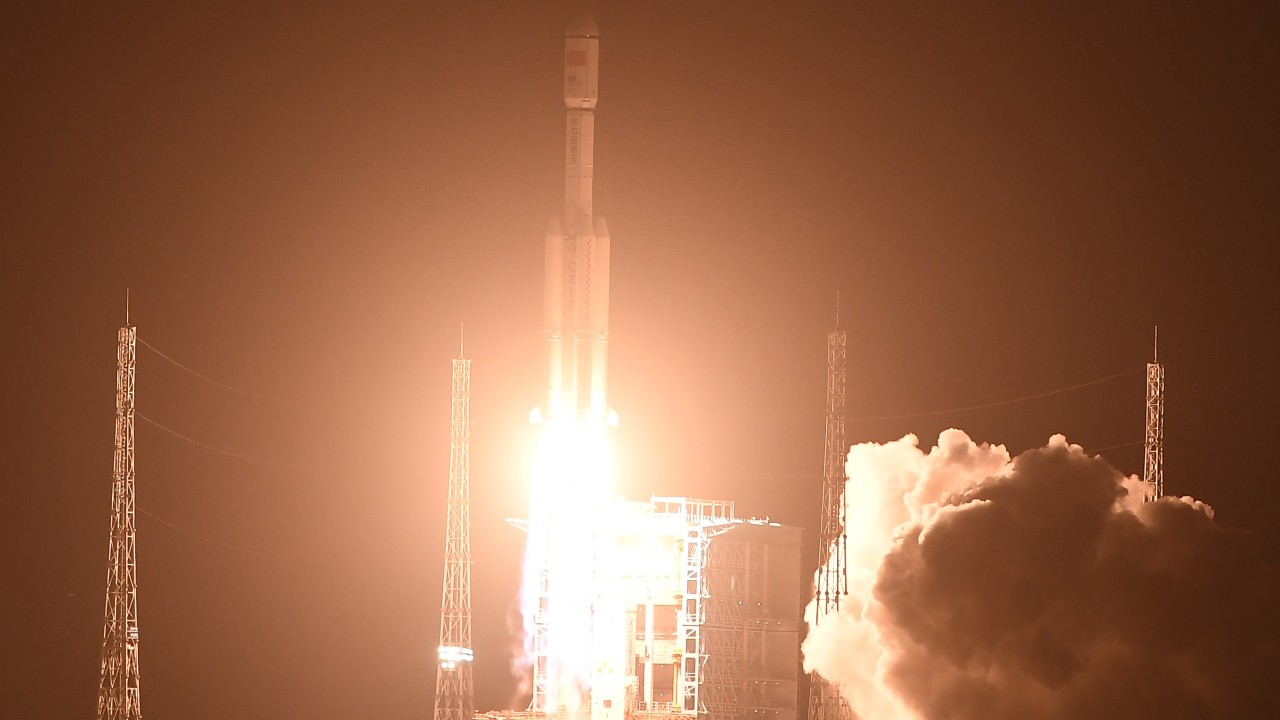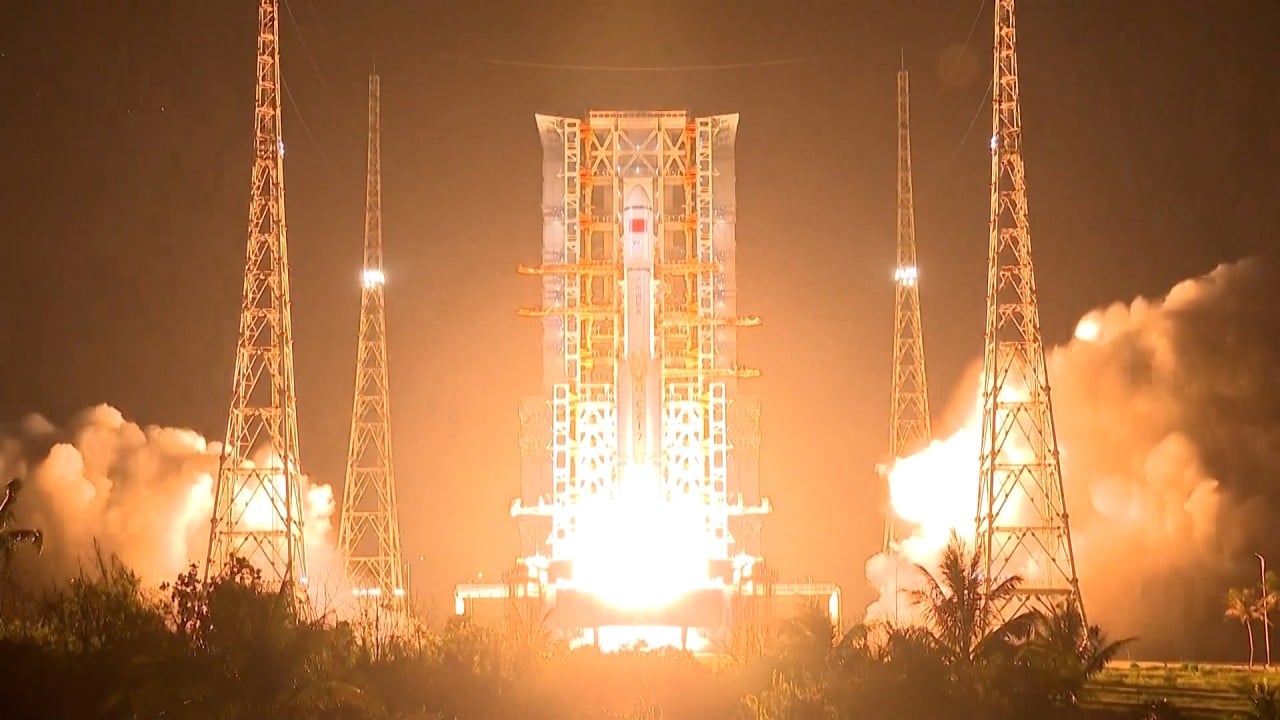China has sent a living “mini-brain” – a chip the size of a credit card containing human brain cells and blood vessels – to its Tiangong space station to find out how space messes with the mind.
Advertisement
Researchers aboard the International Space Station have previously used brain cell cultures and early-stage brain organoids to study ageing and disorders such as Alzheimer’s.
But China’s experiment appears to be the first time a highly integrated brain chip featuring blood-brain barrier functions has been sent into space.
Launched on the Tianzhou-9 cargo spacecraft on Tuesday, the experiment aims to probe the effects of microgravity on the brain and eventually help astronauts prevent dizziness, sleep problems and changes in cognitive function during long missions, according to lead scientist Qin Jianhua of the Dalian Institute of Chemical Physics.
The brain model – grown from living tissue including nerve and immune cells, capillary-like vessels and a barrier that mimics the brain’s natural defences – offers more human-like data than traditional cell cultures or animal experiments, Qin told the state-run China News Service on Tuesday.
Advertisement
She said its three-dimensional, dynamic design also allowed real-time observation of how brain tissues behaved in orbit, making it a powerful tool for space medicine, neuroscience research and drug development.


